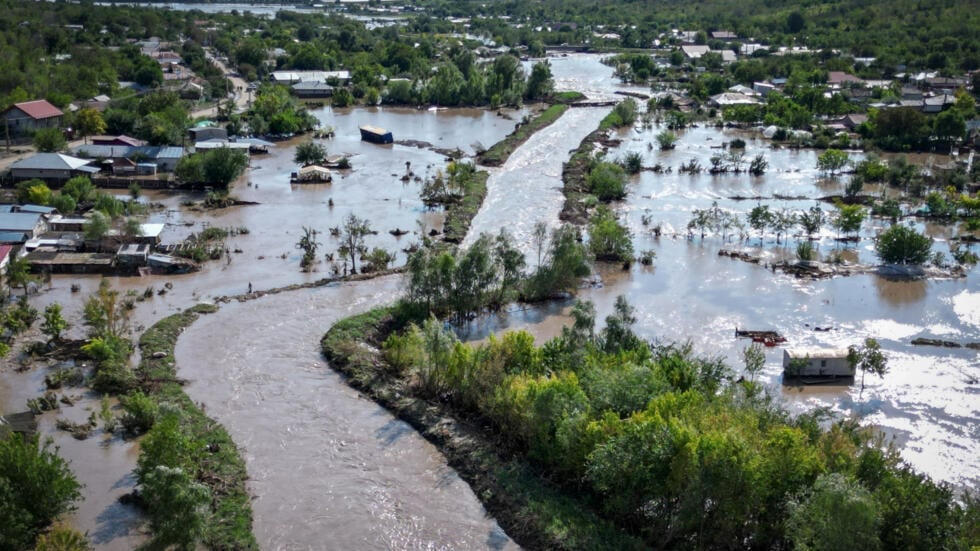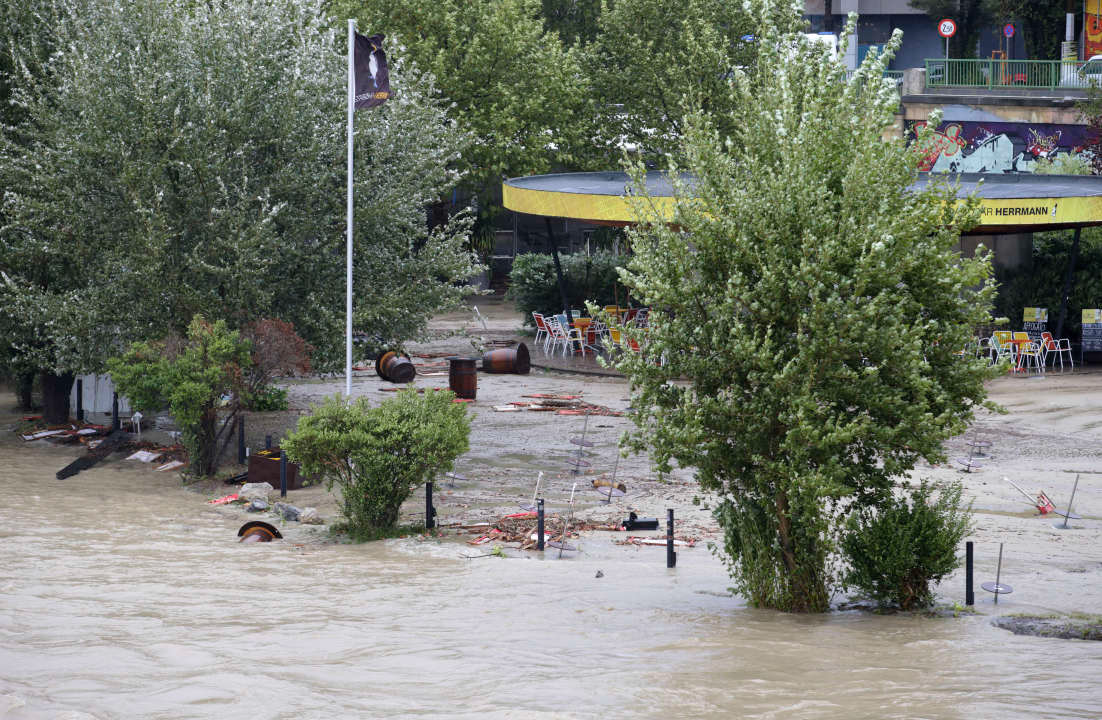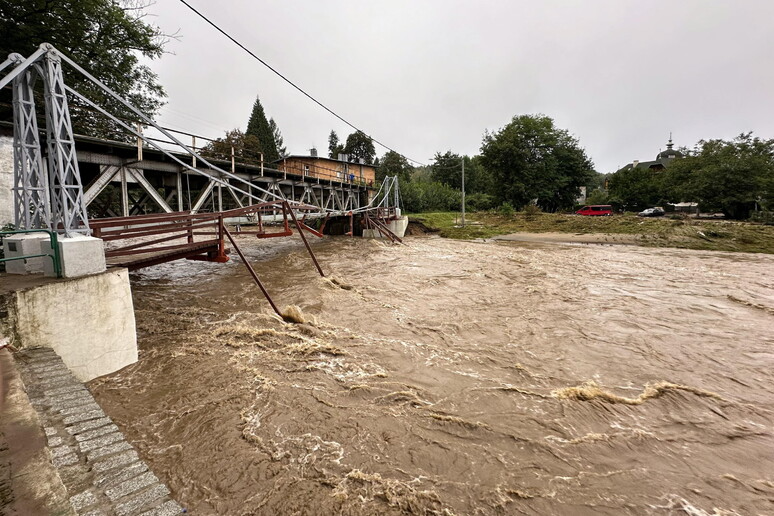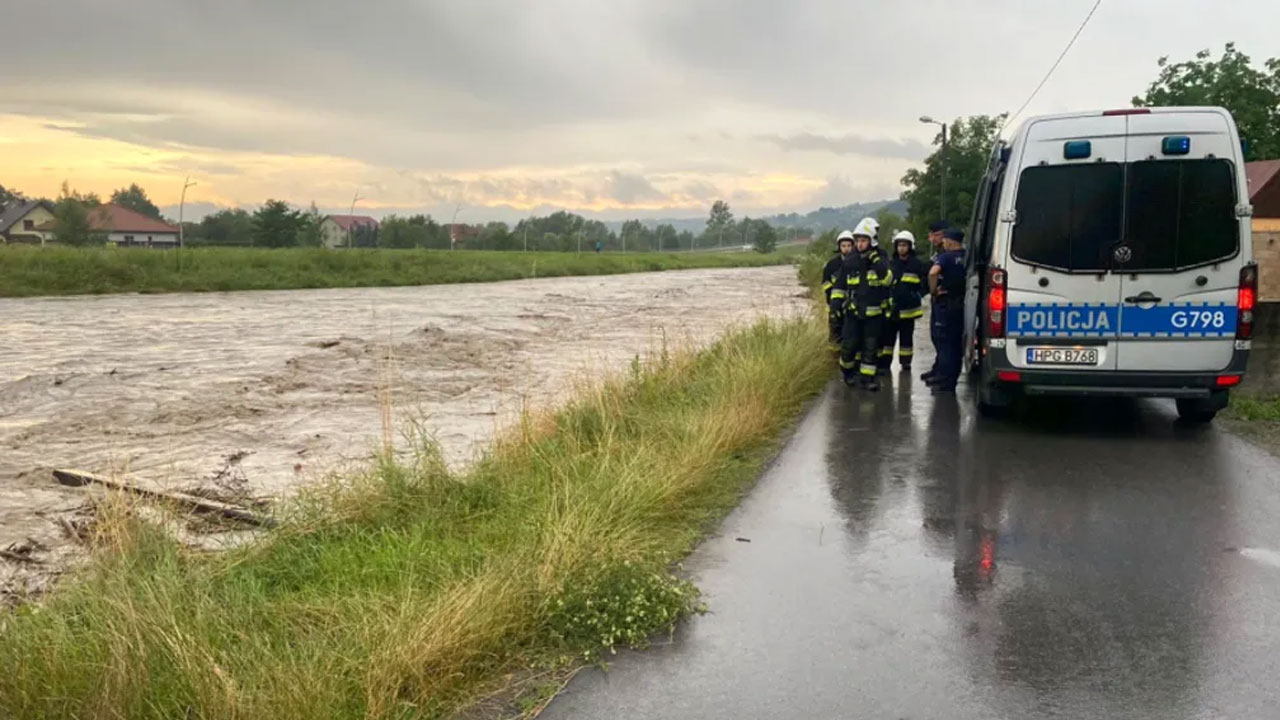The storm that has swept through Central and Eastern Europe, known as Storm Boris, has resulted in a tragic increase in the death toll to 15, with thousands more displaced. This extreme weather event has unleashed torrential rains and devastating floods across several countries, including Romania, the Czech Republic, Poland, Slovakia, Hungary, southern Germany, and parts of Austria. The impact of Storm Boris not only highlights the immediate dangers posed by natural disasters but also raises concerns about the increasing frequency and severity of such events due to climate change.
The Storm’s Path of Destruction
Storm Boris began its onslaught in Romania, where heavy rains have led to widespread flooding, particularly in the eastern region. The National Meteorological Administration issued warnings, urging residents to prepare for potential evacuations. This storm serves as a stark reminder of the vulnerabilities faced by countries in the region, many of which are still recovering from previous climate-related disasters.
Devastating Impact in Romania
In Romania, Galati County emerged as the worst-affected area. The relentless downpour has inflicted severe damage, impacting about 5,000 homes and leaving at least 25,000 residents without power. The Romanian Department for Emergency Situations confirmed the recovery of six bodies, including three elderly women and one man, over the past two days. Local authorities are working tirelessly to restore services and provide assistance to those affected.
President Klaus Iohannis expressed his deep concern over the situation, stating, “We are again facing the effects of climate change, which are increasingly present on the European continent, with dramatic consequences.” His words reflect a growing acknowledgment among leaders that climate change is not a distant threat; it is an immediate reality affecting the lives of millions.

The response from emergency services has been commendable, with teams rescuing hundreds in 19 regions. “This is a catastrophe of epic proportions,” declared Emil Dragomir, the mayor of Slobozia Conachi, where around 700 homes were inundated. As residents grapple with the aftermath of the flooding, recovery efforts are underway to provide shelter, food, and medical assistance to those displaced.
The Situation in the Czech Republic
The Czech Republic has faced its own challenges due to Storm Boris. Heavy rains for three consecutive days have particularly affected the northern regions, leading to significant flooding. Over 50,000 houses have lost power, and while authorities have confirmed one death, seven individuals remain unaccounted for. The situation remains dire as flood risks persist for key rivers such as Odra, Opava, Branna, and Novohradka.
“Evacuations are underway in Opava, Krnov, Ostrava, Jeseník, Frydlantsk, and other locations. Over 12,000 people have been evacuated,” reported Prime Minister Petr Fiala. He emphasized the need for residents to remain vigilant, particularly in areas where floodwaters pose a contamination risk to drinking water supplies. Fiala also warned citizens to prioritize hygiene and consume only bottled water during this crisis.

The state of emergency in the Czech Republic has mobilized numerous resources for relief efforts. Firefighters and rescue teams have conducted thousands of interventions to assist affected individuals and safeguard communities from further risks. The commitment of emergency responders highlights the importance of preparedness and resilience in the face of such natural disasters.
Austria Faces Catastrophe
Austria has also been severely impacted by Storm Boris, leading to 24 villages in Lower Austria being declared disaster zones. The death toll has tragically risen to three, including a firefighter who lost his life while responding to flooding emergencies. Vice Chancellor Werner Kogler expressed condolences and emphasized the importance of following the guidance of emergency services during this critical time.
“The situation in the areas affected by the #Hochwasser (flood) remains very critical,” Kogler warned. The Austrian government has deployed 2,400 soldiers to assist in flood relief efforts, filling sandbags, evacuating residents, and conducting clean-up operations. This coordinated response reflects a commitment to ensuring the safety and well-being of all citizens.
Rail services in eastern Austria have been suspended, and several metro lines in Vienna were closed due to the imminent threat of the Wien River overflowing. Local authorities are actively monitoring water levels, implementing necessary precautions to safeguard infrastructure and protect residents.
The rapid response from emergency services has proven vital in mitigating the impact of the storm. Approximately 5,000 interventions have taken place in Lower Austria, while Vienna has seen about 150 firefighting operations focused on clearing storm debris and pumping out flooded basements. The collaboration between local, regional, and national agencies underscores the importance of effective communication and coordinated disaster management.
Poland and Slovakia Declare Emergencies
In Poland, the death toll has risen to five, with one additional individual tragically drowning in the Klodzko region. Prime Minister Donald Tusk has directed the finance minister to prepare funds for emergency aid and flood damage removal. Additionally, the Minister for European Affairs is expected to apply for European aid to support recovery efforts.
“Approximately 1,600 residents have been evacuated in Klodzko,” Tusk announced, highlighting the urgency of the situation. The Polish government is also consulting with relevant ministers to consider declaring a state of natural disaster, reflecting the severity of the ongoing crisis.

In Slovakia, the capital city of Bratislava is under a state of emergency as heavy rains continue to pose risks. Authorities are working diligently to implement preventive measures to protect residents and infrastructure from potential flooding. The collaboration between local agencies and national government is crucial in navigating this crisis effectively.
Hungary Prepares for Potential Flooding
In Hungary, officials are on high alert as forecasts predict the Danube River could rise above 8.5 meters (27.9 feet), approaching the record levels seen in 2013. Zoltan Kovacs, spokesperson for Prime Minister Viktor Orban, confirmed that amphibious tracked vehicles are en route to assist flood defense efforts. The Hungarian Defense Forces have been mobilized to play a critical role in safeguarding communities at risk.
Budapest’s Mayor Gergely Karacsony emphasized the city’s preparedness to tackle one of the biggest floods in recent years. “According to forecasts, we are approaching a significant flood event, but we are equipped to handle it,” he stated. The proactive measures taken by local authorities reflect a commitment to protecting citizens and mitigating the storm’s potential impact.
Community Resilience and Support
As the storm continues to affect Central and Eastern Europe, community resilience is being tested. Local organizations, volunteers, and residents are stepping up to support one another during these trying times. Many communities are establishing shelters, providing food, and offering emotional support to those who have lost their homes or loved ones.

Social media has become an essential tool for spreading awareness and mobilizing resources. Community leaders and organizations are using these platforms to coordinate relief efforts, share critical information, and connect individuals in need with available services. The spirit of solidarity and cooperation is evident as people come together to navigate this crisis.
The Broader Implications of Storm Boris
The impact of Storm Boris goes beyond immediate damages and casualties; it serves as a stark reminder of the broader implications of climate change. Experts warn that such extreme weather events are becoming more frequent and severe due to changing climate patterns. Governments and communities must prioritize climate adaptation and mitigation strategies to safeguard vulnerable populations.

Investments in infrastructure, disaster preparedness, and community resilience are crucial for mitigating the impacts of future storms. Additionally, addressing the root causes of climate change through sustainable practices and policies is vital to reducing the frequency and intensity of such events.
Conclusion
As Storm Boris continues to unleash devastation across Central and Eastern Europe, the rising death toll and displacement are tragic reminders of the vulnerabilities communities face in the face of extreme weather. The response efforts from local, regional, and national authorities demonstrate a commitment to assisting those in need and restoring stability in affected areas.
As communities begin the long road to recovery, it is essential to reflect on the broader implications of this storm and recognize the urgent need for proactive measures to address climate change. In times of crisis, solidarity and resilience become crucial in navigating the challenges ahead. As the situation evolves, ongoing support, awareness, and cooperation will play a vital role in rebuilding and protecting communities from future disasters.








